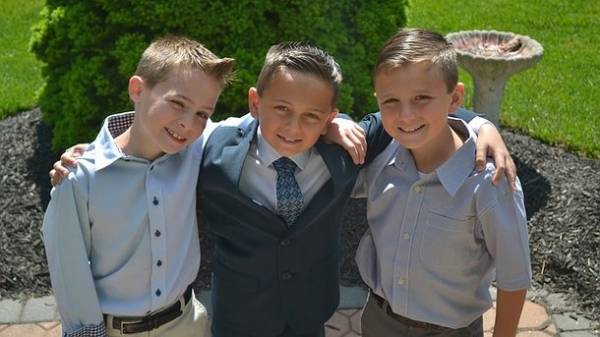
The ability to make friends is laid from an early age, when children learn to communicate.
But not all children given the friendship is equally easy. How parents can help the child who complains that at school or in the yard no one loves, knows psychologist Eileen Kennedy-Moore, reports WoMo.com.ua.
“Nobody loves me” or “Nobody wants to be friends with me” is quite a common complaint 7-year-old children who take themselves too critically, but to feel unpopular and rejected children of any age, assured the psychologist and gives some tips to parents.
Listen to the child and show empathy
We adults concentrate on solving the problem, but sometimes we need to listen to children, to recognize and accept his feelings, and that will be enough. Say: “you Seem to have a bad day” or “I see you’re upset about something”. If your child will be revealed and will tell you what the problem is, you can continue to “mirror” his feelings: “You were hurt when he/she said so” or “It is so frustrating!”, so you show that you understand the child. You can also ask: “Want me to hug you?”
If a child feels rejected by his classmates, he needs a little extra love at home.
Do not overdo it
Yes, it’s hard to see your child suffering, but remember that the child’s feelings can change quickly. Today he says he hates such and such a boy, and after a couple of days say that they became best friends and Vice versa. This is because children lack a sense of perspective. They just haven’t lived long enough to see things wider!
When a classmate hurt your child, you’ll want to “deal” with the parents of the offender. It is not necessary. You want to protect your child, but you don’t want the conflict extended to parents. Of course, in case of danger for your child you need to act, in all other cases, give the child to solve these problems.
If a child sees your concern about it, the problem will only get worse: because it means that it is very serious, since even my mom was upset!
Collect information
If this problem with the friendship continues or is repeated, it is possible that you do not have enough information. Maybe your child tells you everything. It is difficult for children to see their role in interpersonal interactions.
For example, your child say that a classmate pushed the leg of his chair, while your child says that a classmate several times politely asked to move it.
Talk to the teacher who sees your child interacting with other kids, and can tell you how this looks, objectively. You can also observe how your child communicates with contemporaries in the yard, at a party, at the break.
Be a coach
When you understand what is happening, you can help your child learn to be friends. It is better prepare it, for example, to school or to start any other situation in which he needs to socialize.
You can rehearse with your child how to greet friends, to celebrate the success of others, as calmly react when you tease, how to recognize that others are bored, how to cope with an unpleasant situation.
You can also tell your child which kids seem more open to friendship. After all, not everyone will like your child. This is normal. But to continue to offer friendship to someone who doesn’t want is the path to suffering.
Sometimes children just focus on what you want to be friends with the most popular in the class of children that you lose sight of those who can really be a great friend. Yes, and old friendship blurred with time, you may need to make friends with someone new.
Grow the friendship
You can’t be friends with someone is your child, but you can help friendship to grow and develop. If you drive your child to after school club or to the Playground, where he can meet kids that have similar interests. Invite little friends for your children to visit you.
Ask for help if necessary
It so happens that problems with friendship require professional assistance. If your child is being bullied at school or threatening, you should request the intervention of the teacher and Director.
If the difficulties in the interaction with the children continues in the child a few weeks or months, then you should go to a psychologist or therapist who will help the child to overcome difficulties.






